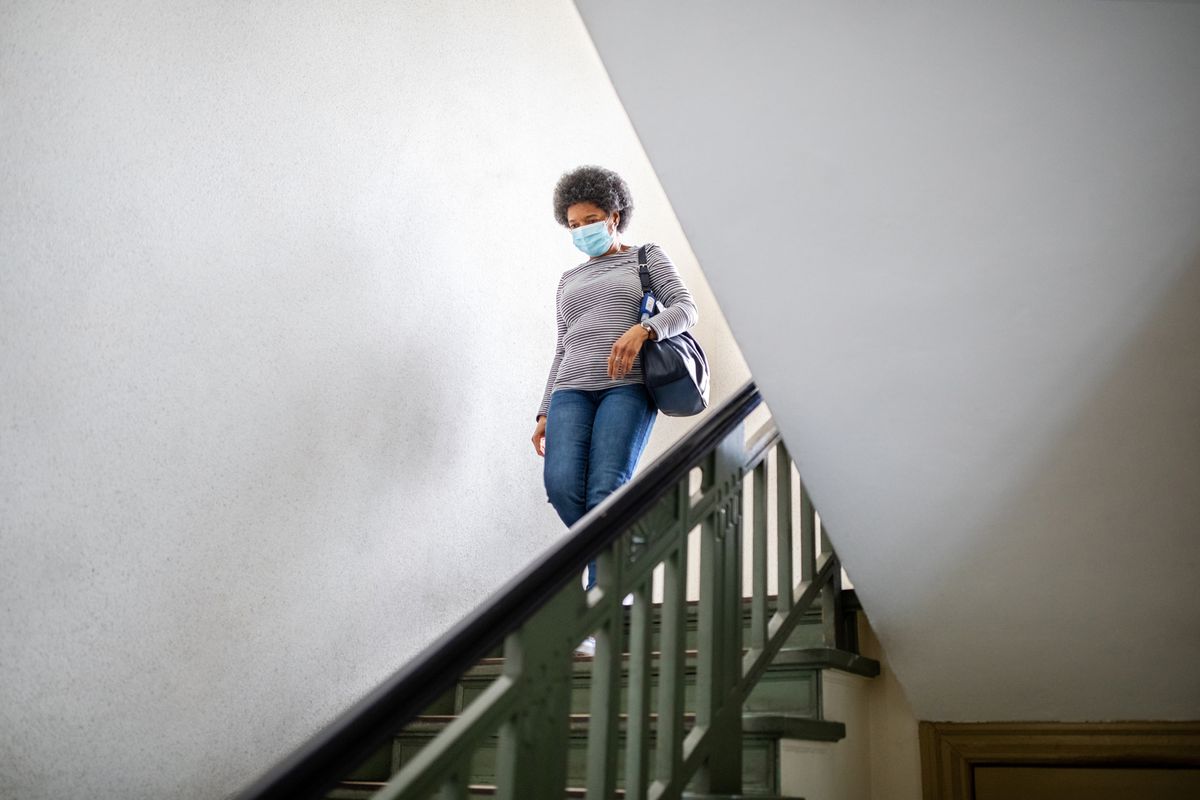
We're quickly closing in on a full year of pandemic-related chaos. For nearly 12 full months the world has fluctuated from a state of panic to hope, and back again. So really, nobody would blame you if you felt a little down. But, there is one way scientists say you can quickly snap out of an emotional funk — and it's by traveling just a few feet down the road.
In December, The Office Group released a survey of 2,000 people around their work/life balance during the pandemic. Unsurprisingly, it found that way too many of us are blurring the lines between the start and end of our workdays now that many of us are working from home, and it is greatly affecting our mental health.
The survey reported, 51% of respondents said they're working outside of their contracted hours, with the average worker putting in an extra 59 hours over the course of five months. It added, 69% of the workers surveyed said their employer isn't offering ways to improve their work-life balance or their personal well-being.
"With almost a third of people saying lockdown has brought them closer to burnout, there is no question the pandemic has greatly impacted the nation's collective mental health," Sarah Vohra, a psychiatrist and mental health and wellness expert, said in a press release about the survey. "Companies must put defenses in place and guard against elements which might cause stress and anxiety, and looking forward, they must make robust changes to ensure employees are protected, particularly during times of uncertainty."
However, there is also a way for employees to take charge of their work/life balance and that's by delineating the start and end of their days by faking a commute.
Healthline spoke to Jamie Goldstein, PsyD, therapy experience lead at Coa, who noted that people may want to fake their commutes to work because it acts as a natural "segmentation" to the day.
"Before quarantine, we'd have time to go to and from our offices. We built in time for lunch hours and even travel time to go from one meeting or appointment to the next. These moments of physical transition allowed us to move between our roles as parents, project managers, partners, and more," Goldstein said.
It's simple to get started, and really up to you on how you fake your own commute. But, rather than get dressed and get in your car to drive to nowhere, why not try a brisk 20-minute walk instead?
"By taking just 20 minutes each day to introduce a habit, such as a walk, moment of meditation, or even just getting outside to grab a coffee, we can all improve our physical and mental wellbeing during a time when it's crucial we look after ourselves," Neville Koopowitz, CEO of Vitality, an insurance company, shared with Bustle.
These brief 20-minute walks in the morning and the evening can not only help people transition from life to work and back to life again, but they can also serve as a way for us to combat seasonal affective disorder, or SAD, in these cold and dark winter months. "Try to get as much natural sunlight as possible – even a brief lunchtime walk can be beneficial," the National Health Service said.
So today, rather than continuing to sit on your computer when it's time to clock out, get up, put on a coat and mask, and walk around the block. It may be all the travel you need (for now) to feel like yourself again.
Stacey Leasca is a journalist, photographer, and media professor. Send tips and follow her on Instagram now.
Source: Read Full Article










